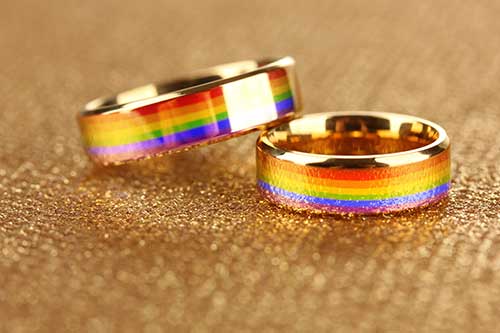Obergefell, Kim Davis, and the SCOTUS

When former clerk Kim Davis declined to certify same sex marriages due to her sincerely held religious beliefs in Rowan County, Kentucky in 2015, she set into action a series of legal actions leading to her being jailed briefly, then being sued and found liable for $100,000 in damages in addition to $260,000 in attorneys’ fees. After exhausting her avenues for appeal in the lower federal courts, she has again appealed directly to the Supreme Court, which denied her first request for cert in 2020.
This time, Davis’ writ of certiorari asks the Supreme Court not only to rule in her favor on her right to refuse to issue marriage licenses based on freedom of speech but to reverse Obergefell, the 2015 marriage equality case, as the foundation for her unconstitutional jailing and subsequent monetary penalties and damages.
Later this year or next year, the Supreme Court will decide, for the second time, whether to hear the appeal of her case. If they grant cert (meaning they will hear the case), we will likely have a ruling in June of 2026. The vast majority of legal experts believe it is unlikely that the Supreme Court would agree to hear her appeal, including our nationwide organizations.
If Obergefell is reversed, marriages between same sex couples will no longer be granted in North Carolina, though existing marriages, wherever validly granted, will continue to be recognized. And couples who are able to marry in any other state that recognizes same sex marriage will continue to be recognized by North Carolina and every other state. The administrative burden of this reality is another reason experts believe Obergefell is unlikely to be reversed.
Despite these assurances, we know that we live in a world where unspeakable things are happening to our community and others, currently considered politically unacceptable.
Our community has seen these times before. In the early days of my legal career, it was considered a felony to be a “practicing” homosexual. It eventually became safer to be outwardly queer in 2002 with the decision of Lawrence v. Texas. While I am deeply saddened to see these days return, attorneys like me across the country have the tools our community needs to protect itself. In fact, most of us have never retired those tools because we know that equality is a destination we have yet to reach.
It has been nice to feel like we have more legal security since Obergefell. Obergefell certainly brought us additional cultural security in the form of greater societal acceptance. But ultimately, marriage did not resolve all the legal gaps that make our families more vulnerable than different sex cis het families. It did, however, lead us to believe that we no longer needed our advocacy organizations or intentionally queer spaces.
I am attaching a legal NP Legal Readiness Checklist list for you to this post. It hasn’t changed significantly over the years, though the urgency for its attendance has the past ten (10) months. Attend to these legal matters as quickly as you can.
The road we face is arduous. I urge you to do the things that we have been best at, the things that have made us both the envy and the target of regressives everywhere: build community, choose family and then protect them even when the law does not, protect them when you are hurt or angry with them, continue expanding the definition of family and spread the umbrella of belonging to others who targeted and excluded, tell and preserve our stories.
Lastly, hold onto hope. We are a magical community. We alchemize pain into beauty and belonging. You are a magical being; brave in ways other people only dream of and unerringly true to your own path in ways that people spend years and tens of thousands of dollars to achieve.
I am with you in love and co-creation of the future where we are free.
Milan

 Call: (919) 883-4900
Call: (919) 883-4900